Born August 8, 1937 in Los Angeles, Dustin Lee Hoffman’s first brush with acting came in his high school production of A Christmas Carol. His father has worked in the film studios as a prop supervisor and a set dresser. Later at college, he developed a passion for theater. Hoffman attended classes at California’s famous Pasadena Playhouse. He became friends with a fellow student named Gene Hackman. Hoffman did several odd jobs in his 20s to pay the bills, which included working as a janitor and typist. He made his Broadway debut at the age of 24 in 1961. He also appeared in the TV series Naked City.
In 1967, after a few TV movies, Hoffman first appeared in a small role in The Tiger Makes Out. His next role immediately ascended him to stardom. He played a drifting college graduate Benjamin Braddock in Mike Nichols’ iconic drama The Graduate. Hoffman was nominated for an Oscar. Two years later, he once again received an Oscar nomination for Midnight Cowboy (1969). He brilliantly played a homeless man surviving in the decadent urban society. From then on, Dustin Hoffman became one of the era’s boldest method actors, taking up versatile roles in different genres. Two-time Oscar winner, Hoffman won AFI’s Life Achievement Award in 1999.
Here’s a look at his 15 best performances:
1. The Graduate (1967)
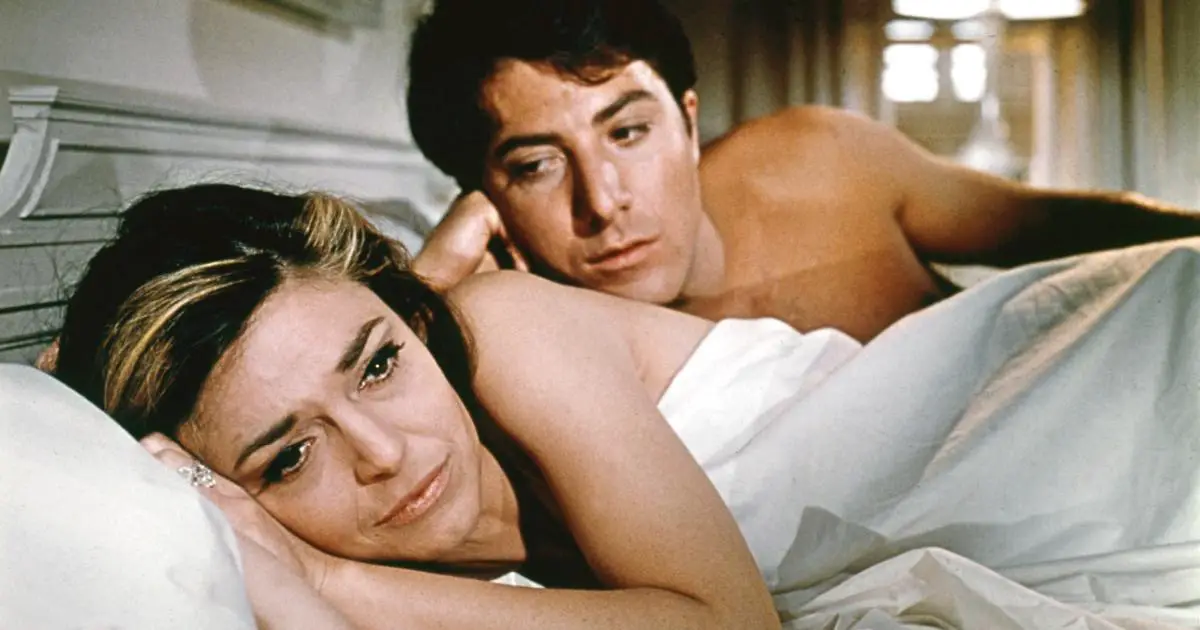
A different form of cinema emerged from the Hollywood Studios in the late 1960s and throughout the 70s. Borrowing the visual style from European art cinema, these youth-oriented American movies radically pushed the cinematic boundaries of sexual depictions. Mike Nichols’ The Graduate is one of the starting points of the Hollywood Renaissance era. Dustin Hoffman plays Benjamin Braddock, a disaffected youth. He commences an affair with his mother’s sexually frustrated friend Mrs. Robinson (Anne Bancroft). Later, he falls in love with her daughter (Katherine Ross). Hoffman’s Benjamin became the face of America’s surging counter-culture.
The alienation and nervous energy Hoffman inhabited spoke to the urban young middle class Americans. Hoffman was not the first choice to play Benjamin. The role first went to Robert Redford, but the fairly unknown 29-year old actor flawlessly encapsulated the uncertainties and ineptitude of a young man. Besides, the film ends with a wonderful note of ambiguity, especially for a Hollywood dramedy.
2. Midnight Cowboy (1969)
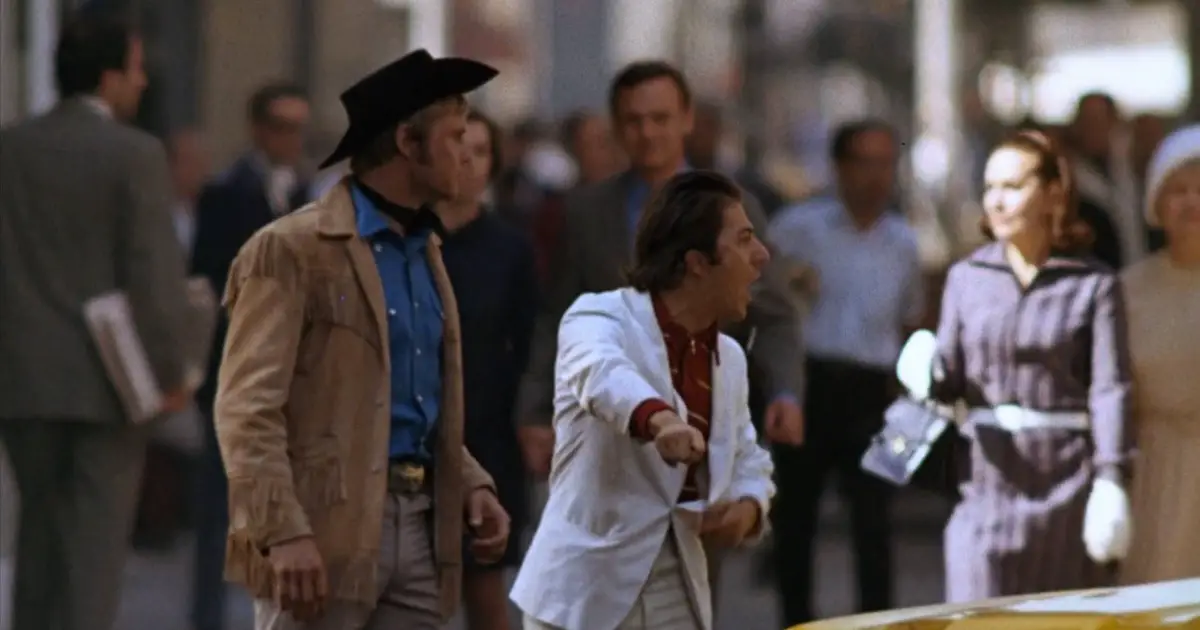
In the only X-rated movie to win an Oscar for Best Picture, Hoffman plays a small-time New York con man. Jon Voight plays Joe Buck, the film’s central character. Joe is a Texan who arrives to the city with dreams of becoming a high-end male prostitute. The fleeting visuals of the past indicate Joe’s horrific sexual experiences. In addition, his constrained worldview only propels Joe to confront more abuse.
Homeless and broke, Joe and Ratso Risso (Hoffman) are the little pieces, the big city easily chews up. The friendship between these two dispossessed characters forms the essence of this brooding drama. No other actor could have perfectly nailed the character of Ratso like Hoffman. Disabled by polio and impaired by his inability to function in the society, Hoffman’s performance was a tour de force. He kept pebbles in his shoes throughout the shoot in order to ensure the consistency of his limp.
3. Little Big Man (1970)
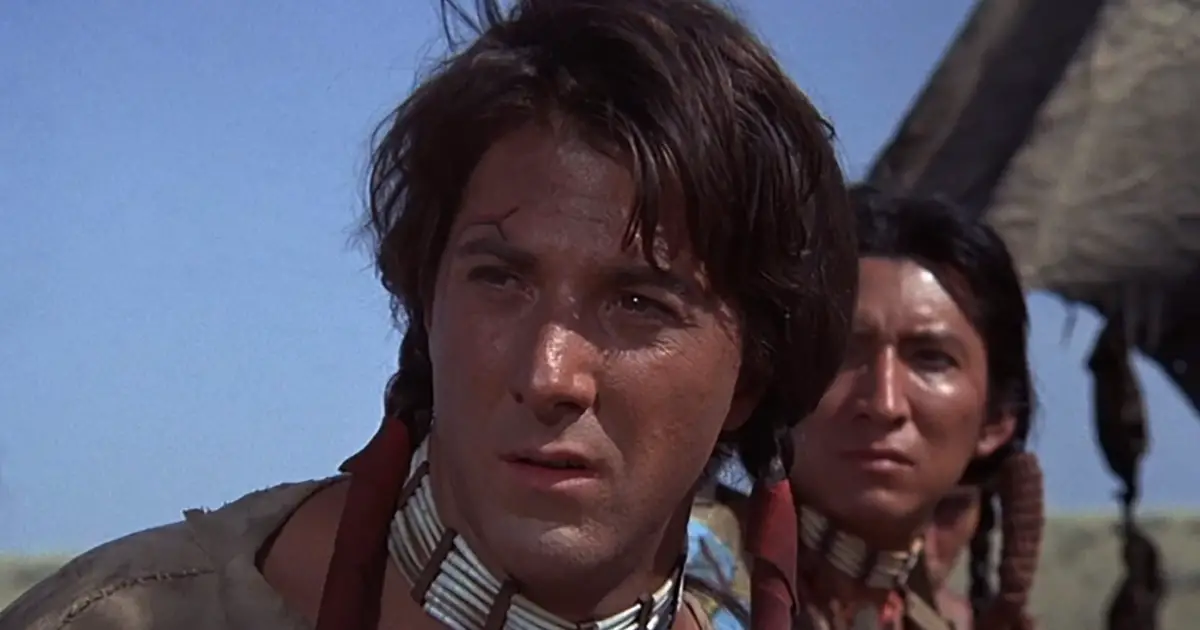
Arthur Penn’s epic revisionist Western tells the incredible tale of Jack Crab, a gunslinger raised by the Cheyenne. The story unfurls from the perspective of 121-year old Jack, who was raised by Native Americans. He narrates his colorful and eventful life. The film’s biggest conflict revolves around General Custer’s decision to take over the territories of Chief Little Bighorn. And no, it’s not a typo. He actually plays a 121-year old man. Hoffman underwent 5-hour make up for the part.
Although the film, to a certain extent, overly dramatizes or trivializes Native American characters, it’s a lot better than the glossed over Westerns of John Wayne. The oft-repeated American history is excellently satirized through Jack’s perspective. Penn’s assured vision and Hoffman’s magnificent performance make this a brazen, bittersweet Western. Since the narrative canvas is bigger, Hoffman relished the chance to play different shades of the character.
4. Straw Dogs (1971)
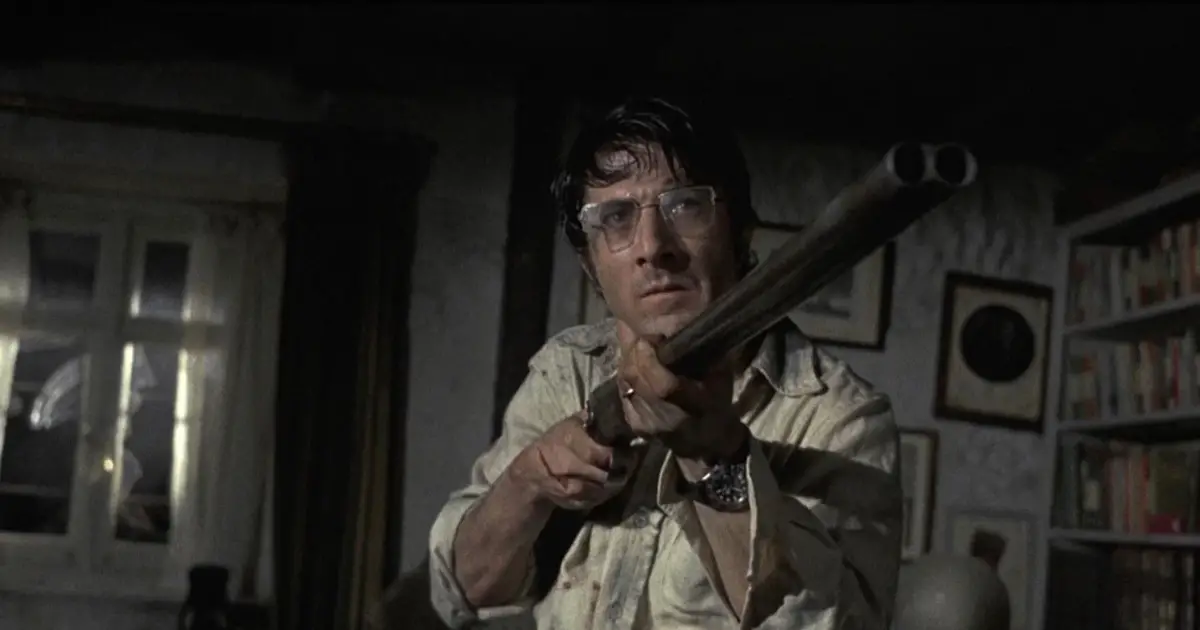
Sam Peckinpah’s brutal drama confirmed Dustin Hoffman’s strong ability to portray any kind of character. Hoffman’s David Sumner is a repressed, cerebral personality. The pathos Hoffman brings to David is what makes the viewers accept the character’s volatile transformation. David and his wife Amy (Susan George in her career best performance) move to a small town. Amy has grown up in the town and runs into one of her old flames.
The bad marriage between the young couple reaches a boiling point when David hires Amy’s old boyfriend to work on their garage. Straw Dogs is an acerbic commentary on the human savagery hidden beneath the superficial veneer of civilization. It gets unsettling with every scene, and has us rooting for David as he is pushed to the corner. It’s a role that plays with the actor’s chameleonic abilities since David comes across as a more complex character than what he initially seemed.
5. Papillon (1973)
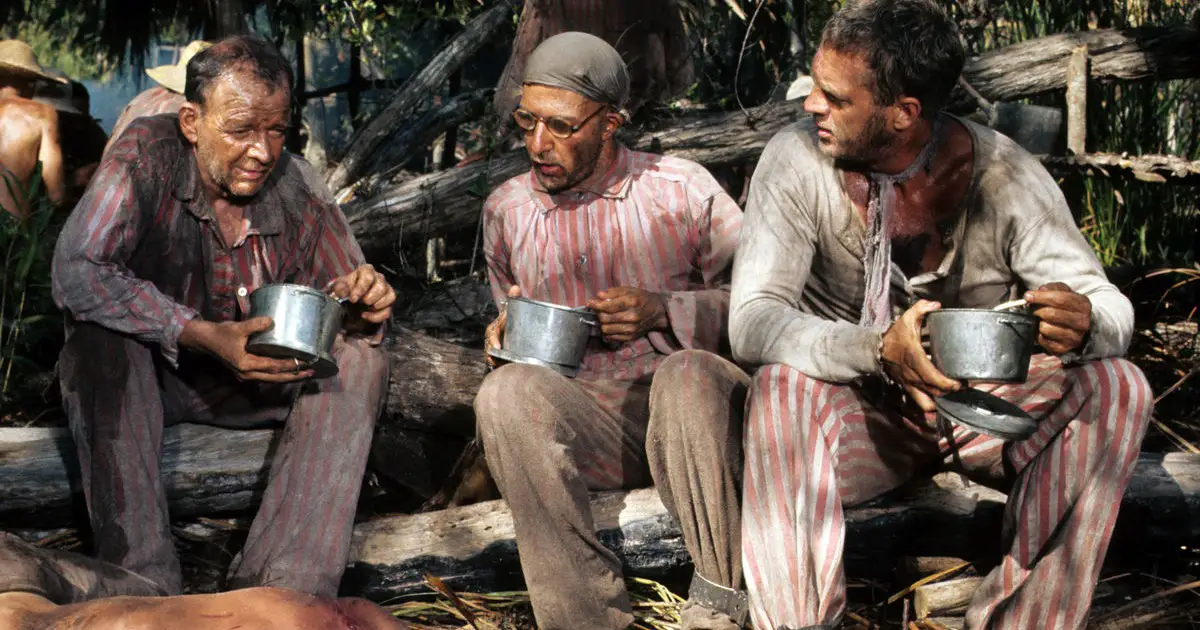
This adventure spectacle was the adaptation of the popular 1969 autobiographical novel by Henri Charriere. Dustin Hoffman chose an interesting range of roles very early in his career, compared to the era’s other method actors. Despite the star-making performances in The Graduate or Little Big Man, he had never hesitated to take on second lead characters. Steve McQueen majestically played the title character under Franklin Schaffner’s fantastic direction. Hoffman plays the convicted forger and Papillon’s friend Louis Dega who agrees to finance the titular character’s escape from the hellish penal colony. The actor deliberately chose roles that made it hard for Hollywood to typecast him.
With his haunted eyes and bespectacled looks, Hoffman brings great emotional intensity to the proceedings. He plays a more fragile, emotional person countering Papillon’s pugnacious characteristics. The moments showing the relationship between Papillon and Dega are the most extraordinary ones.
6. Lenny (1974)
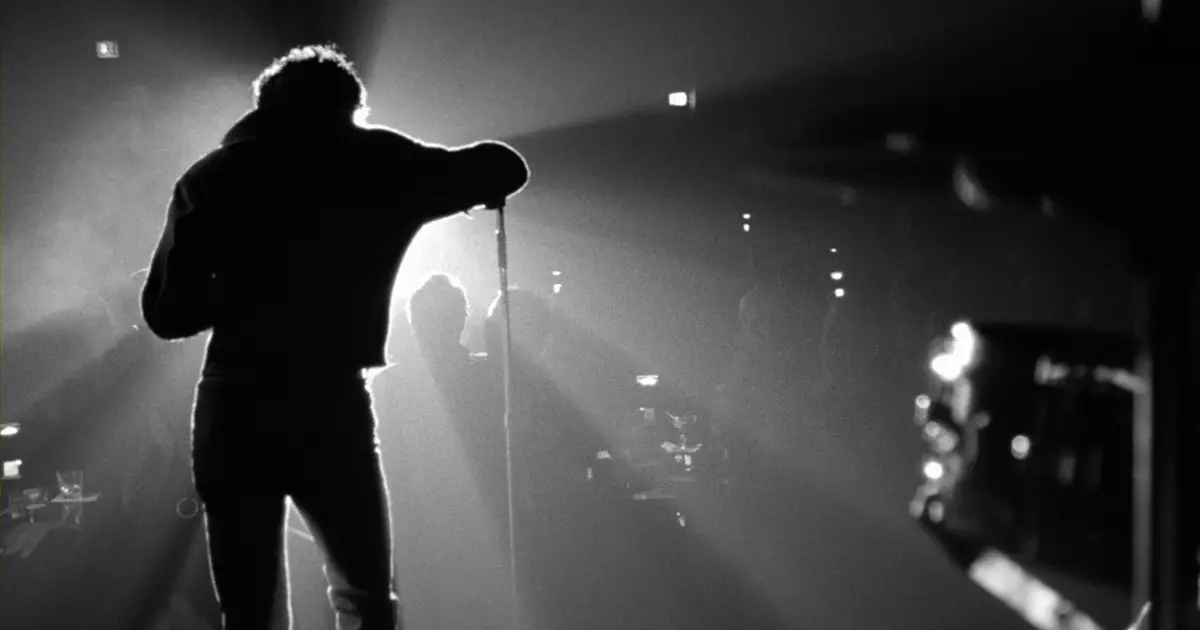
Bob Fosse’s Lenny chronicles the life and times of the misunderstood but highly innovative comic Lenny Bruce. It’s an agonizing biopic of a lost man; a man whose social crusader stance and regretful lifestyle undo his burgeoning success. The narrative structure and the performances from Hoffman and Valerie Perrine deserve special mention.
The unstable nature of the character is well established through Citizen Kane-style interviews and flashbacks. The greatest parts of the film are the ones dealing with Lenny’s downward spiral, provoked by his addiction to heroin. Hoffman truly inhabited the character, perfectly following the brutal character arc. The best thing about Hoffman’s performance is that he didn’t try to imitate the real Lenny. He rather creates a Lenny who is multi-layered and much more than a stage performer. Lenny earned six Oscar nominations, and Hoffman got his third Oscar nomination after Midnight Cowboy.
7. Marathon Man (1976)
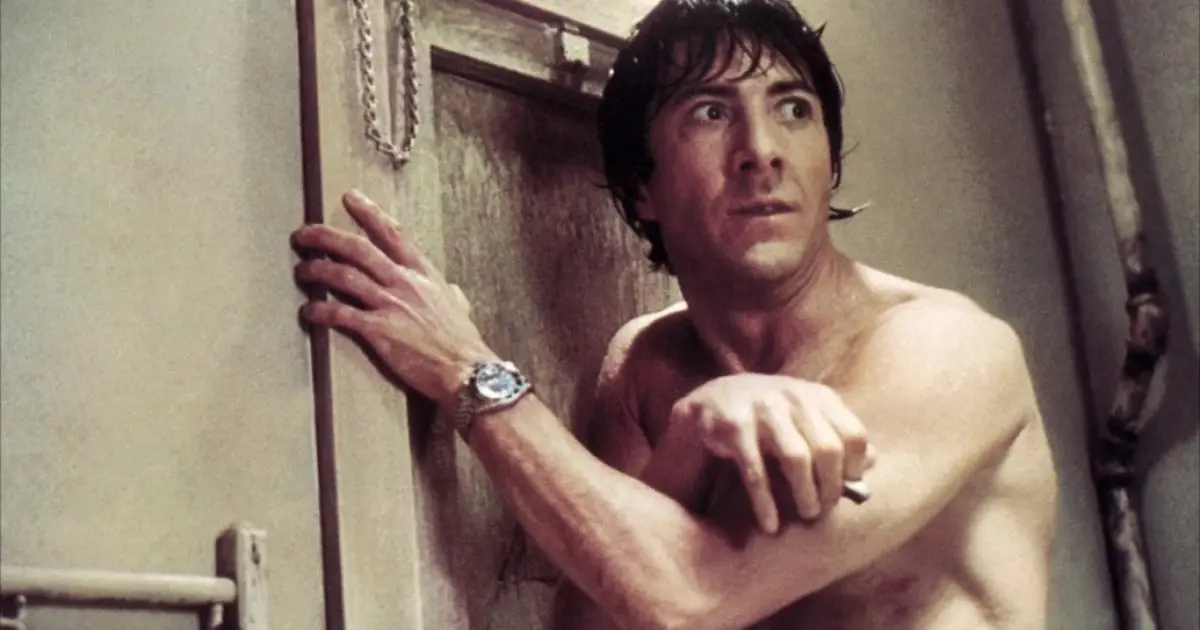
John Schlesinger’s moody thriller is best identified by the showbiz story chronicling the intriguing collaboration between old-school actor Laurence Olivier and method actor Dustin Hoffman. This is one of the thrillers where the script twisted up a rather simple story. Olivier plays Szell, a Nazi war criminal living in Argentina. The death of his brother pushes Szell to take upon a journey to America and retrieve a treasure.
Hoffman plays Thomas Levy aka Babe, a marathon runner and a Columbia graduate student. His older brother Doc is an American agent who is on the mission to capture Szell. Doc’s murder gets Babe caught in the conspiracy weaved by the Nazi criminal. ‘Is it safe?’, Olivier repeatedly asks in a chilling scene while brutally torturing Hoffman. The two commanding central performances help camouflage apparent weaknesses in the narrative.
Marathon Man brilliantly showcases Dustin Hoffman’s talent and dedication to his craft. He went full-on method for this one. He stayed up for three days and three nights to create a rugged, panicked, sleep-driven look of a man who’s pushed to the brink of madness. Few actors could beat him at this.
8. All the President’s Men (1976)
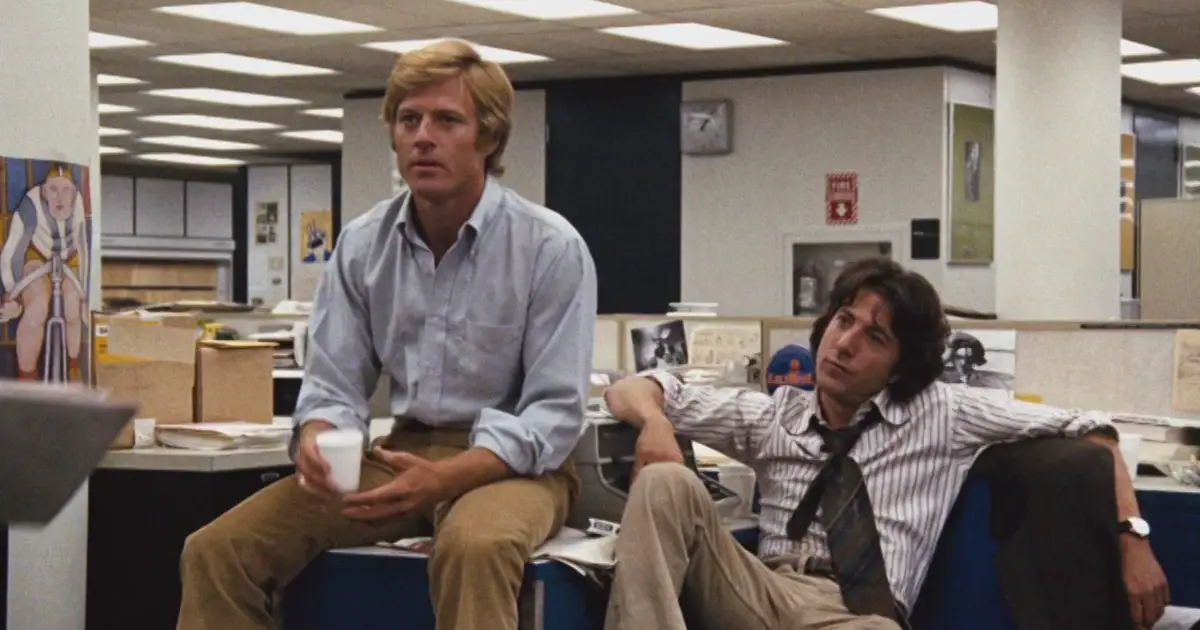
The Nixon era’s Watergate scandal gained American’s full attention and stripped their trust in the government. Washington Post’s Bob Woodward and Carl Bernstein first uncovered this scandal that eventually toppled the administrators. They became the poster boys for investigative journalism. Director Alan Pakula was roped in to make the subsequent bestselling book into a film. Dustin Hoffman played Carl Bernstein and Redford took up the role of Bob Woodward. To prepare for the role, Hoffman closely followed Bernstein for months and thoroughly studied the process of news-gathering. He brings enough wit and charm to what otherwise might have been a plain dogged character.
Fun fact: the reason people use the suffix ‘gate’ for certain scandals, like Slapgate, and so on, is because of this. The Watergate scandal shook the American Government to its very foundations. This article may be about Dustin Hoffman, but you simply cannot overlook the exemplary performance of his co-star Robert Redford. You just can’t get enough of them.
9. Straight Time (1978)
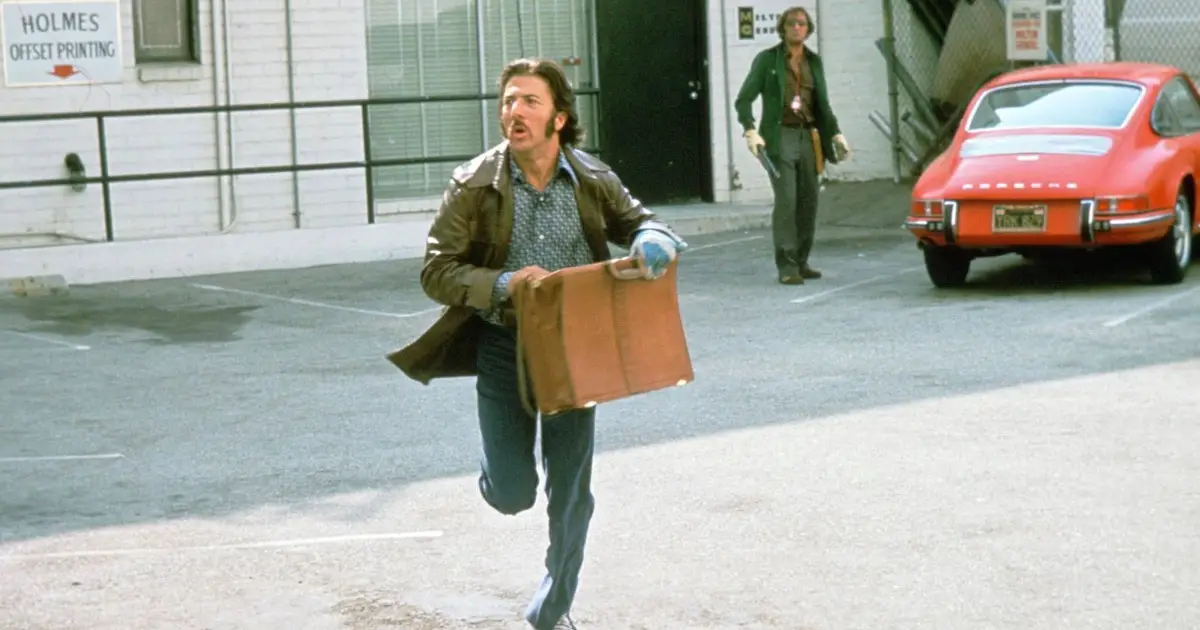
In Ulu Grosbard’s Straight Time, Dustin Hoffman plays Max Dembo, a small-time ex-con whose efforts to redeem his life only leads to tragic consequences. It was one of his best yet lesser-known roles. Hoffman was set to direct the film, but opted out four days into the shoot. Later in his career, in 2012, Hoffman directed the graceful music drama Quartet starring Maggie Smith and Michael Gambon.
Hoffman as Max turns in one of his most deeply felt performances. The authentic criminal underworld developed for the narrative makes Max’s descent more tragic. Immediately after his release from jail, Max is determined to go straight and falls in love with a woman who gets him a job at a can factory. Yet, Max’s complicated past leads him back to the path of crime. The narrative never explains why Max chose the life of crime or justify his action. It states that’s the way he has always been. At the same time, Hoffman perfectly humanizes the otherwise flawed and unlikable character.
10. Kramer vs Kramer (1979)
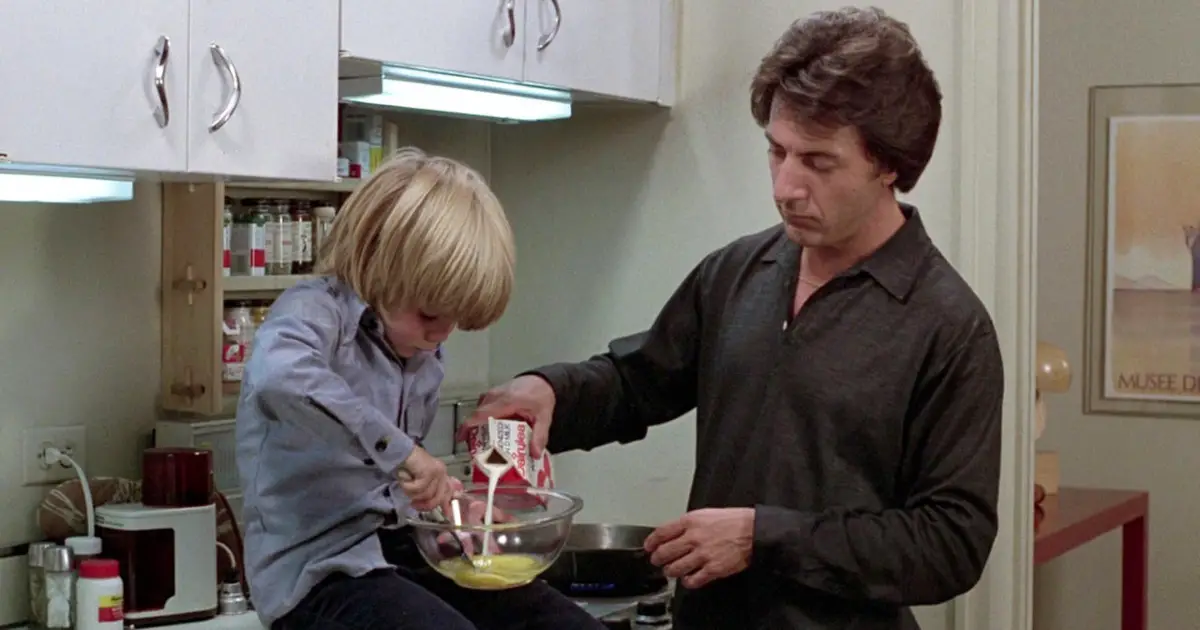
Dustin Hoffman is known for his notorious method acting techniques. In fact, it was the cause for numerous controversies surrounding his acting career. The controversy surrounding this particular film is that Hoffman taunted Streep to extract the emotional intensity required for the face-off between Ted and Joanna Kramer. The unauthorized biography of Meryl Streep reports Hoffman really slapped Streep during an on-screen fight scene. A bit too much method maybe?
The film tells the tale of Ted Kramer, who rediscovers the bond with his little son Billy. Joanna finds motherhood boring and marriage superficial. But after leaving Ted, she commences a custody battle over Billy. Kramer Vs Kramer is a gut-wrenching study of the ugly realities behind divorce procedures. Joanna’s character was said to be rightly altered in the movie version to dilute the novel character’s vindictiveness. It helps provide a more emotionally balanced conflict between the Kramers. Both the great actors, despite their off-screen differences, won Academy Awards for their performances.
11. Tootsie (1982)
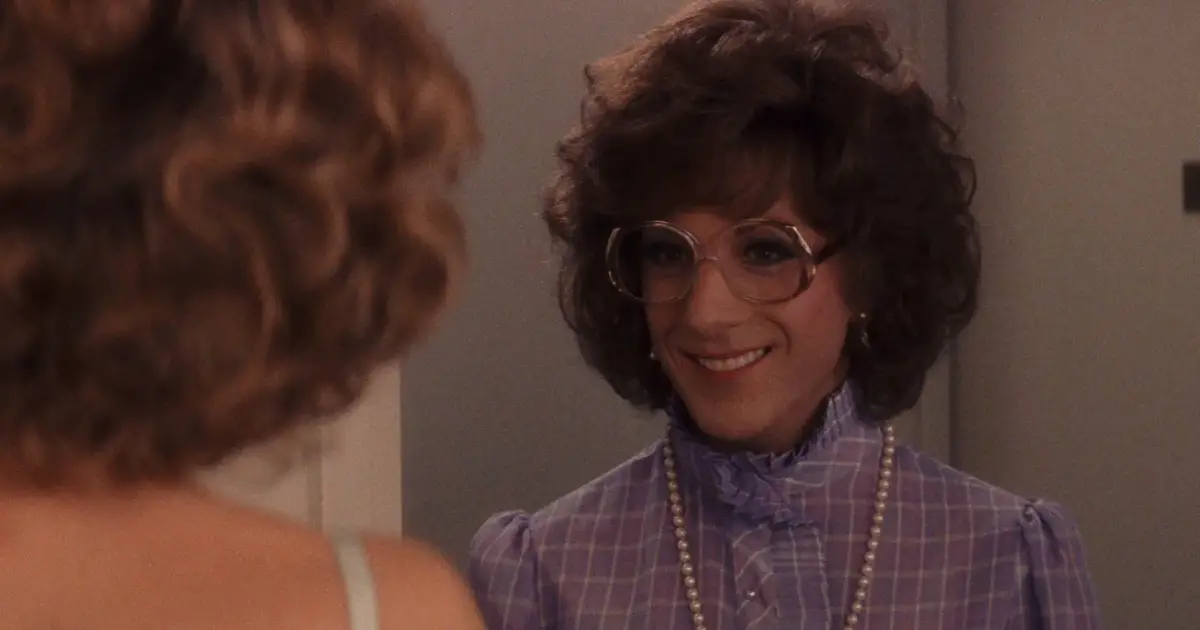
The premise of Sydney Pollack’s comedy seems silly, but its overt message on gender inequality still remains relevant. Dustin Hoffman plays an out-of-work actor Michael who masquerades as Dorothy Michaels. The change fares better as Michael/Dorothy gets a juicy role in a popular soap opera. Michael, the former ladies-man, now literally puts himself in the women’s shoes to empathize with precepts of feminism.
The notion of feminism depicted in Tootsie has its own set of problems. But that doesn’t take away the brilliance of Hoffman’s performance. His physical transformation is believable and doesn’t look like a man dressed in drag. He effectively toggles between two polarizing personalities while winning viewers’ empathy. In fact, Hoffman didn’t simply offer a hilarious performance like Robin WIlliams later did in Mrs. Doubtfire (1993). The film has its share of poignant and nuanced portions, particularly Dorothy’s moments with Jessica Lange’s character Julie.
12. Death of a Salesman (1985)
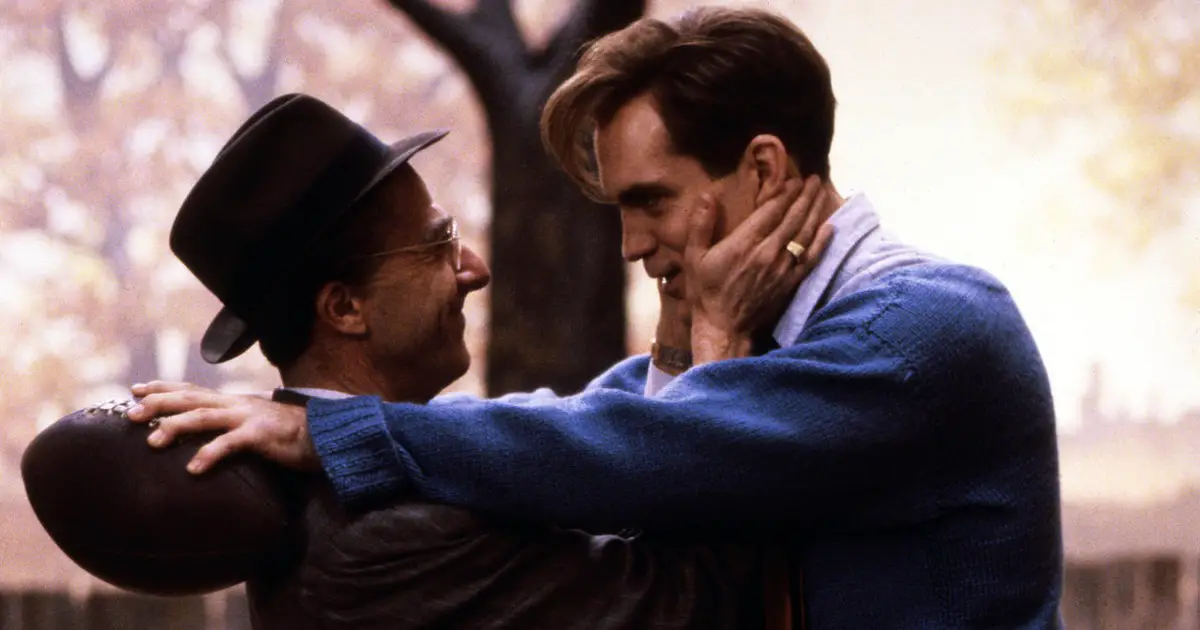
German filmmaker Volker Schlondorff’s adaptation of Arthur Miller’s play is considered as one of the finest on-screen versions. Prior to the adaptation, the play was mounted on Broadway in 1984 and became a sensational hit (played 97 performances at New York’s Broadhurst Theater). The then 48-year old Dustin Hoffman played a 63-year old Willy Loman. It was considered the most high-powered portrayal of Willy by any actor.
Willy is a frustrated elderly salesman obsessed with the American Dream. He is pushed into the thorny path to reflect on his own existence at face value. John Malkovich played the role of Willy’s elder son Biff. Hoffman and Malkovich‘s scenes together demand our attention. Hoffman’s performance is devoid of pretense or sentimentality. Despite the age difference, Hoffman brings out his character’s frailties with empathy and clarity. The actor received an Emmy Award for his performance.
13. Rain Man (1988)
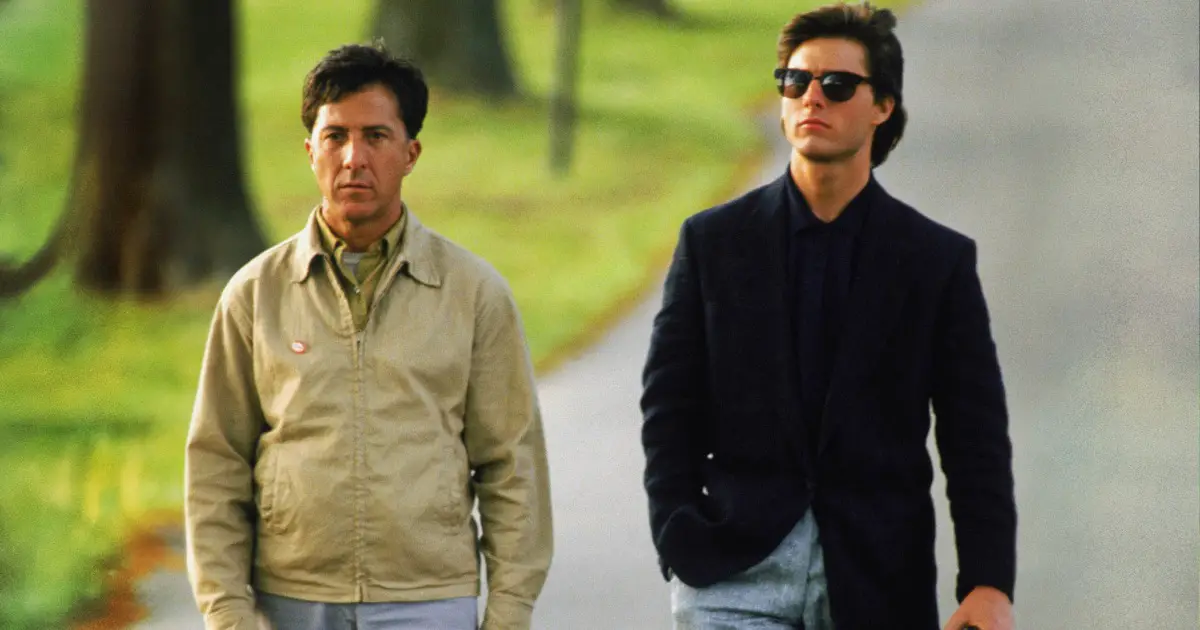
Hoffman’s incredible performance as the autistic savant Raymond Babbitt got him his second Oscar for the best male lead. Nevertheless, over the years, advocates from the autism community have criticized the performance. Arguably, the role was accused of creating stereotypes of autism. Many of the perceptions about autism and savant syndrome in Rain Man have become obsolete. Similarly, it’s common knowledge that autism is a broader spectrum, and is different with every person. Not every autistic individual would have the mannerisms of Hoffman’s character. Unfortunately, Rain Man became a popular analogy today for anything related to mental defects.
Hoffman’s Raymond is a strange genius, who can easily count cards, but can’t connect his perception to a set of emotions. He is kidnapped from the care home by his younger brother Charlie (Tom Cruise). Charlie has just learnt of Raymond’s existence and doesn’t have good intentions behind this abduction. Watching it the first time, Hoffman’s performance had me transfixed. Irrespective of the portrayal of autism on-screen, the actor has done a wonderful job in displaying his full range of feelings.
14. Wag the Dog (1997)
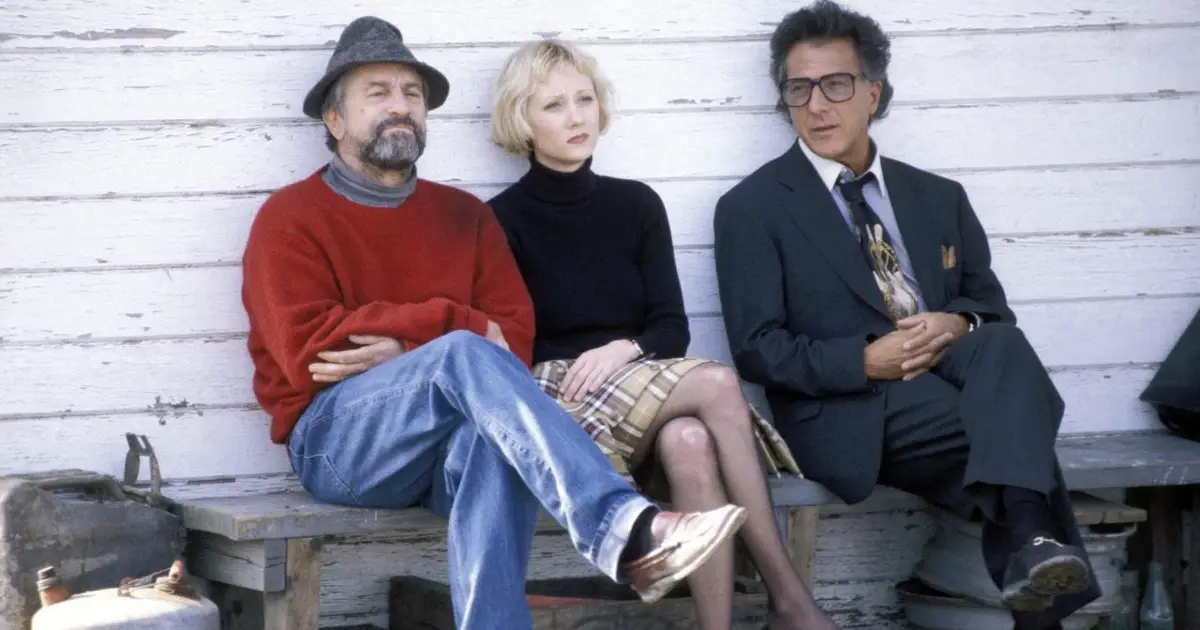
Barry Levinson’s cynical, twisted political comedy has Dustin Hoffman playing Stanley Motss, a successful Hollywood producer. The President, a few days before the election, is accused of molesting a girl scout visiting the White House. As a result, Conrad Brean (De Niro), the great spin doctor, is brought in. His job is to engineer a big story to distract the voters’ interest in the sex scandal. Conrad’s plan is to manufacture a fake war against Albania.
He and Motss spend an afternoon in a Hollywood Studio, staging news footage of refugee girl barely escaping the bombing (the whole thing is shot against a blue screen). It was exciting to see Hoffman and De Niro play against each other. To add to it, the masterful satirist David Mamet penned the script. Although few elements in the film seem absurd, the media deception portrayed here isn’t very far-fetched. Wag the Dog happens to be one of Hoffman’ and Robert De Niro’s most overlooked projects.
15. The Meyerowitz Stories (2017)
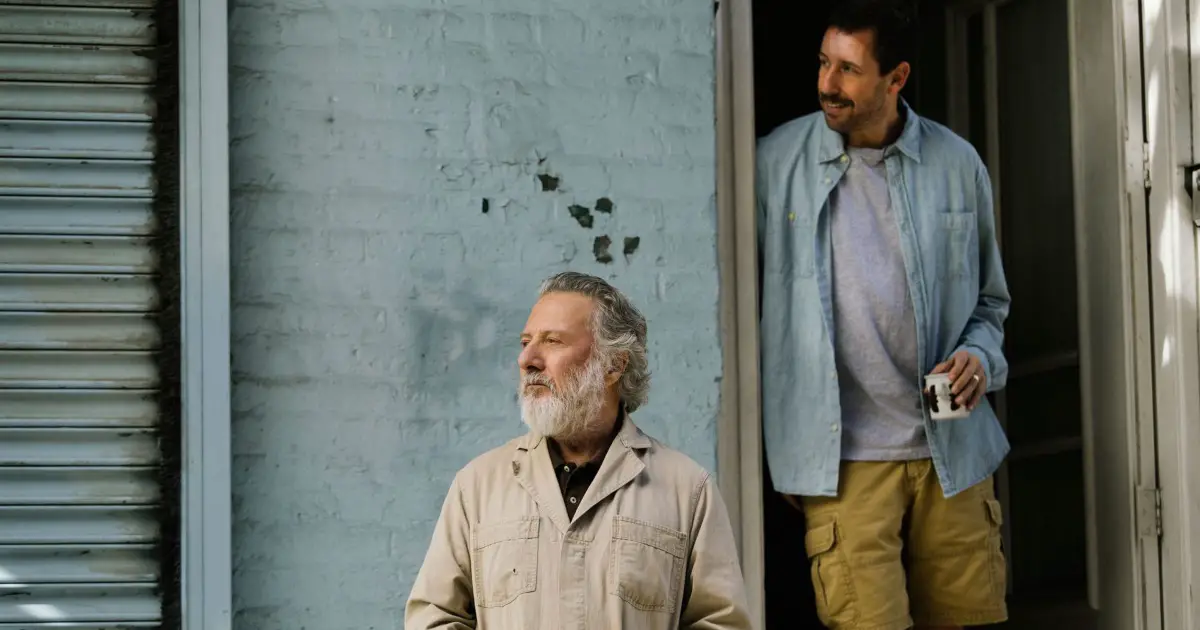
2000 onwards, Dustin Hoffman settled into more light-hearted, comic roles. His role as a detective in David O. Russell’s comedy I Heart Huckabees (2004), and as the witless Greg Focker in Meet the Fockers were the most memorable of the lot. He also offered a strong performance in a rare leading role in Last Chance Harvey (2008). But Hoffman’s greatest role in the last two decades is clearly as Harold Meyerowitz, a self-centered patriarch in Noah Baumbach’s brilliant family drama.
Hoffman’s Harold is a renowned sculptor who feels he is slighted by the artistic community. And Harold’s sons have to mostly deal with his sullen moods. Harold is not an easy character to relate with or like. But the veteran actor perfectly brings out the many shades of the character, while also dispensing barbed insults in the most enjoyable manner.
Conclusion
We’re well aware of Streep’s report about Hoffman ‘overstepping’ the boundaries by slapping her for real in a scene. Hoffman was going through a divorce in his real life during the filming of Kramer vs Kramer. He acknowledged that he was totally depleted then, was into drugs, and that he might have taken that out on her. But more shocking news about the actor followed in 2017 with The Hollywood Reporter claiming five women accused Dustin Hoffman of sexually predatory behaviour (later more women came out with accusations). Consequently, the news of Dustin Hoffman making a comeback in Broadway in July 2020 was met with derision in social-media.
Meanwhile, the actor has been part of a couple of dramas that are all set to release this year. What are your favorite Dustin Hoffman films? Which ones do you think should have made it into the top 15? Let’s talk in the comments below.

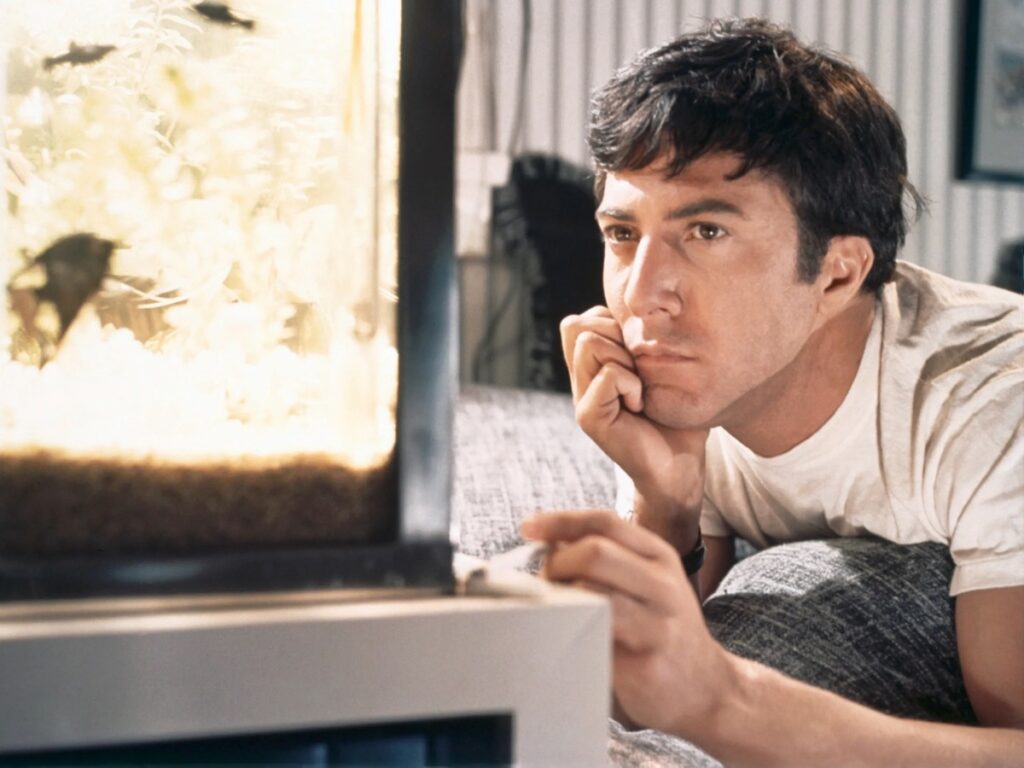
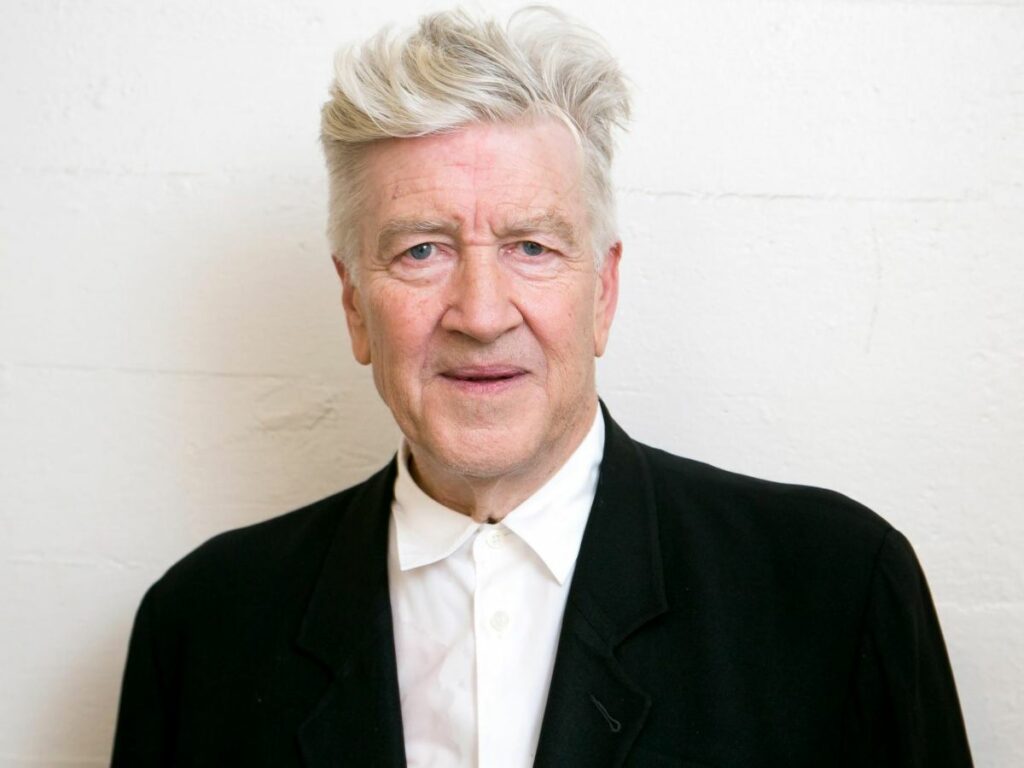
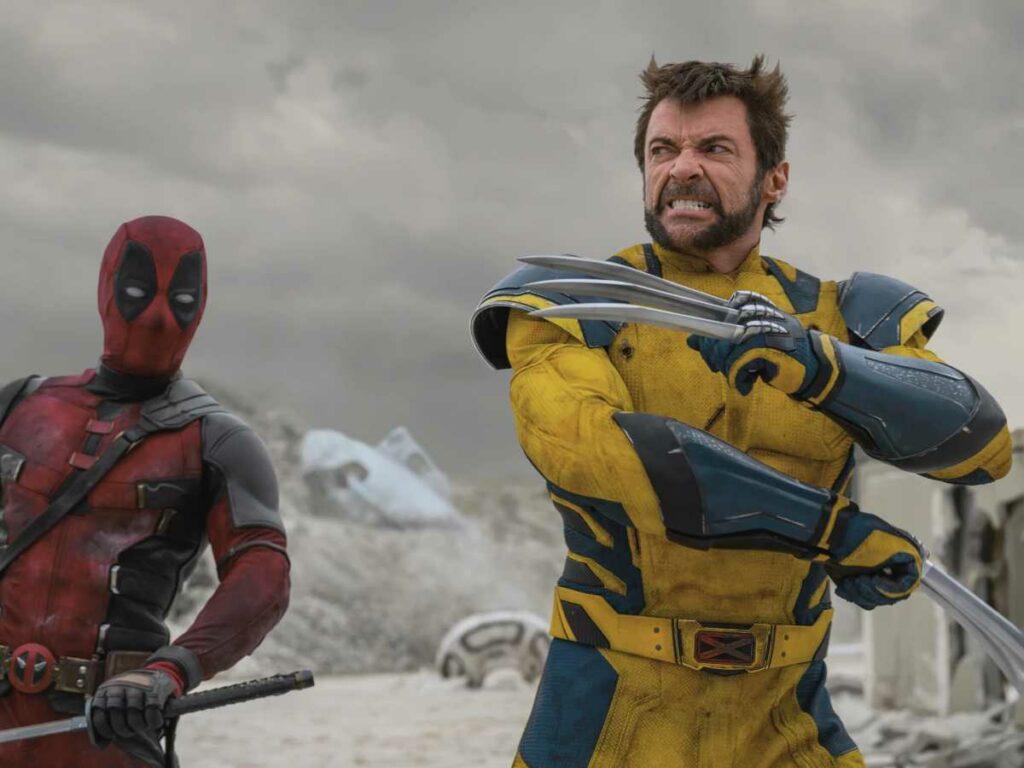

1 thought on “15 Best Dustin Hoffman Performances Of All Time”